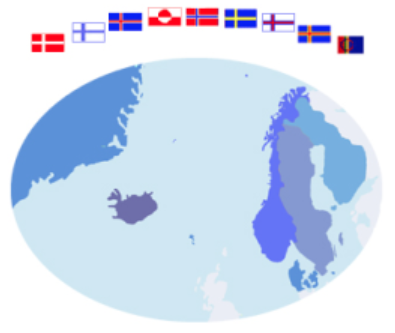Joining the Nordics linguistically

There’s nothing wrong with these languages, but they’re not the easiest languages for Scottish people to learn – French, Spanish and Italian are Romance (not Germanic like English and Scots, or Celtic like Gaelic), German has preserved four grammatical cases, and Mandarin is a very different language with an extremely complex writing system.
The easiest foreign languages for Scottish pupils are probably Dutch and the continental Scandinavian languages – Danish, Norwegian and Swedish. (Icelandic and Faroese are harder due to preserving many more of the Old Norse inflections.)
There’s nothing wrong with learning Dutch, but there’s a specific reason why the Scandinavian languages might be more useful: Nordic cooperation.
Swedish, Norwegian and Danish are mutually intelligible, but Faroese and Icelandic are not, and Finnish and Greenlandic aren’t related to them in the slightest. However, in Greenland, Iceland and the Faroes everybody learns Danish at school, and in Finnish schools Swedish is obligatory.
As a result, Nordic cooperation tends to use a mishmash of Danish, Norwegian, Swedish and English. If you take part in a Nordic conference, for instance, it’s a requirement that you’re able to understand Danish, Norwegian and Swedish to some extent, even if you express yourself in English – for instance because some of the talks and papers will be in those languages.
So Scotland will struggle to become a full member of the Nordics unless a lot of people start learning a Scandinavian language. It doesn’t really matter whether it’s Swedish, Danish or Norwegian, given that they’re mutually intelligible, and different local authorities could make their own choices.
It would have the added benefit that Scots speakers would recognise many of the words (“the fremmit bairns will redd up in the hoose an the kirk wi their neives the morra an pit the stoor an the stanes in the kist” is “de fremmede børn vil rydde op i huset og kirken med deres næver i morgen og putte støvet og stenene i kisten” in Danish), and perhaps that’d make them prouder of Scots. And of course there are many Scandinavian place names in Scotland, which will make language learning a bit more fun.
Most kids don’t really learn enough French at school for it to be useful, so why not go Scandinavian instead?